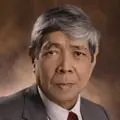AS we have already seen in the first three parts of this series, absolute phrases are in many ways an intriguing part of speech of the English language. They can modify an entire sentence without using a finite noun or a finite verb, and without any conjunction to connect them to the main sentence: "His dream realized, the man gave himself a well-deserved rest." "Their plan in shambles, the desperate politicians beat a hasty retreat." Absolute phrases efficiently provide optional information that puts the idea in the main clause in context — often even overshadowing that idea.
Already have an active account? Log in here.
Continue reading with one of these options:
Continue reading with one of these options:
Premium + Digital Edition
Ad-free access
P 80 per month
(billed annually at P 960)
- Unlimited ad-free access to website articles
- Limited offer: Subscribe today and get digital edition access for free (accessible with up to 3 devices)
TRY FREE FOR 14 DAYS
See details
See details
If you have an active account, log in
here
.


